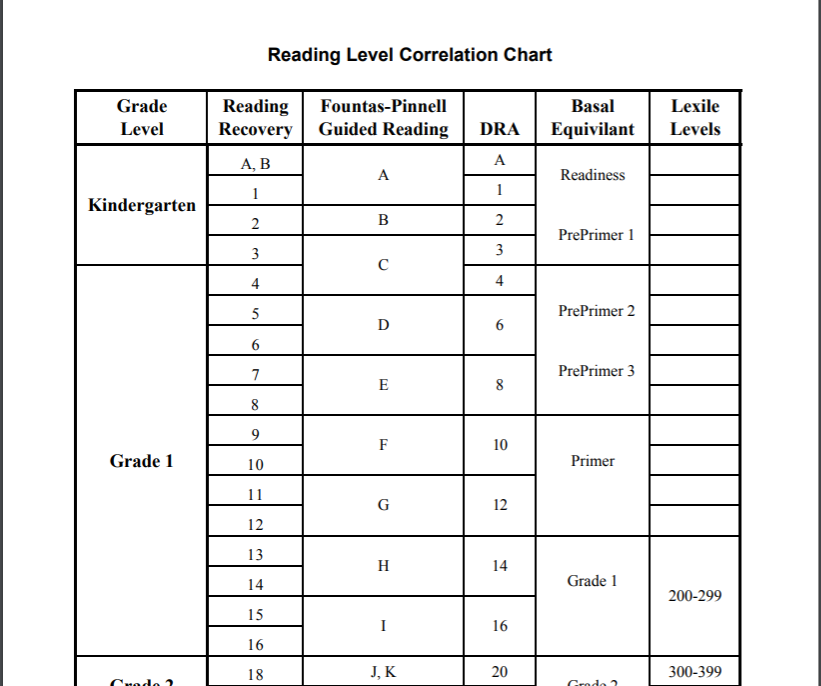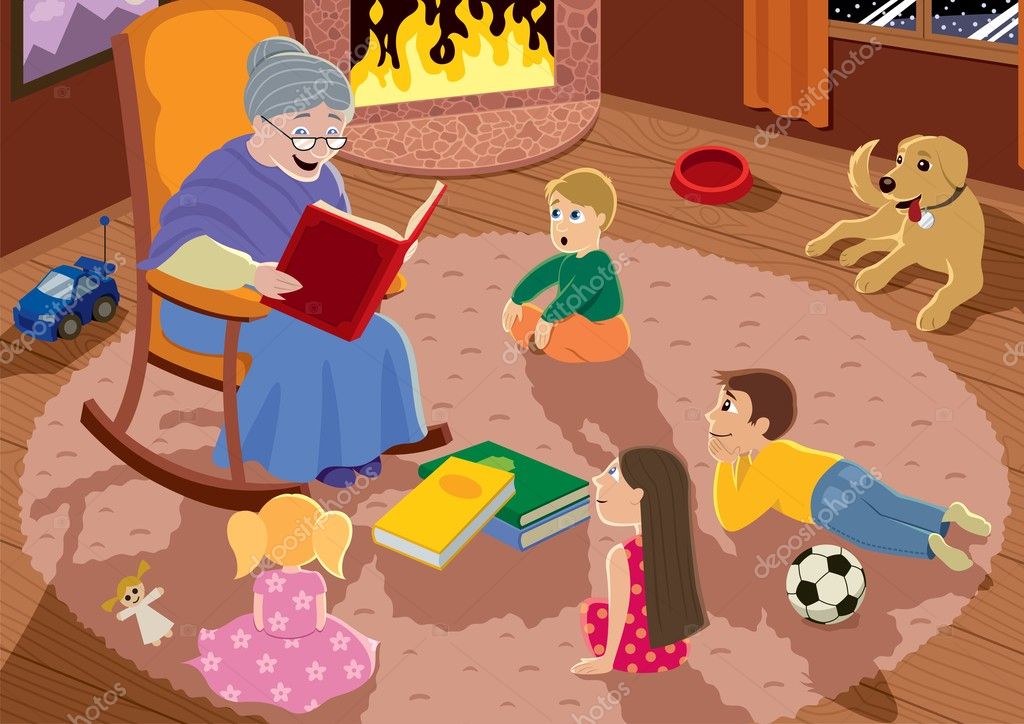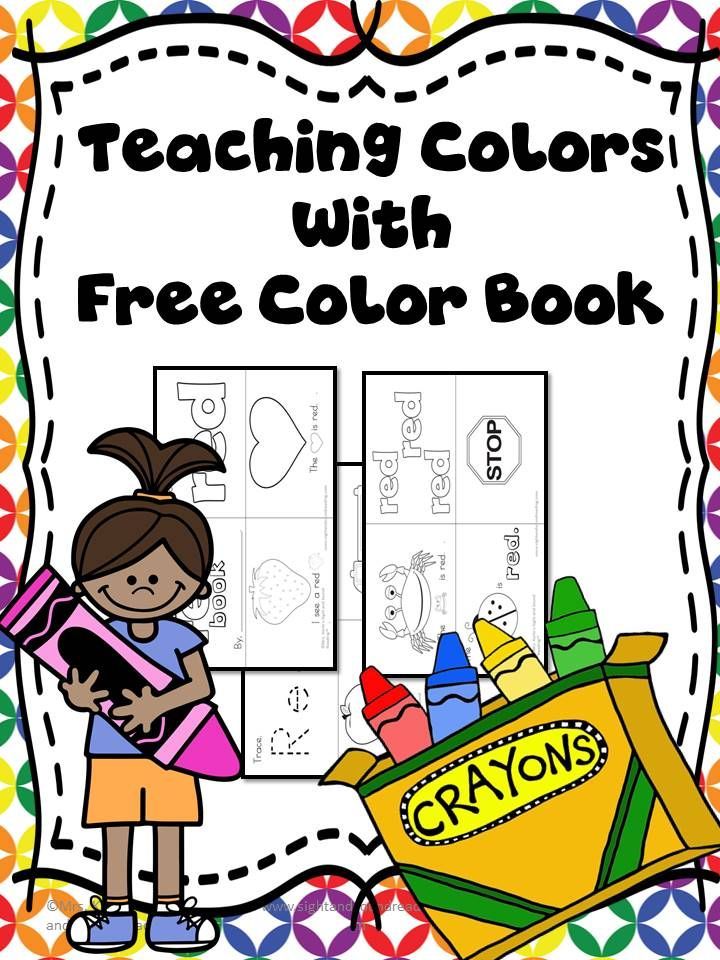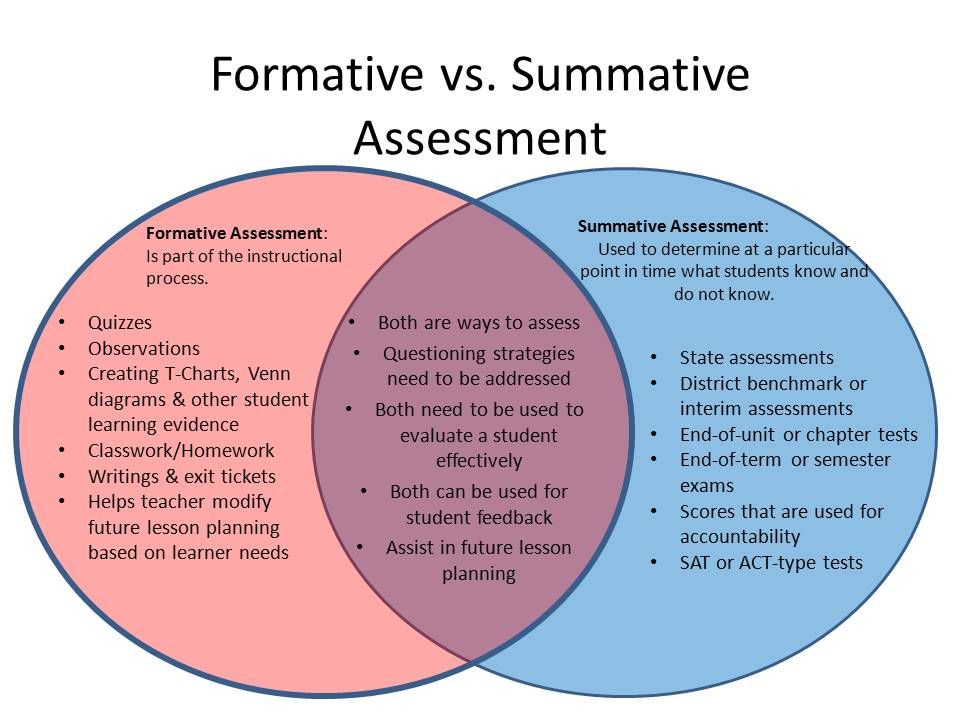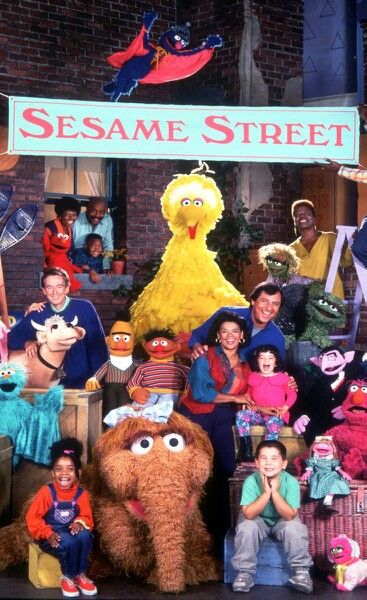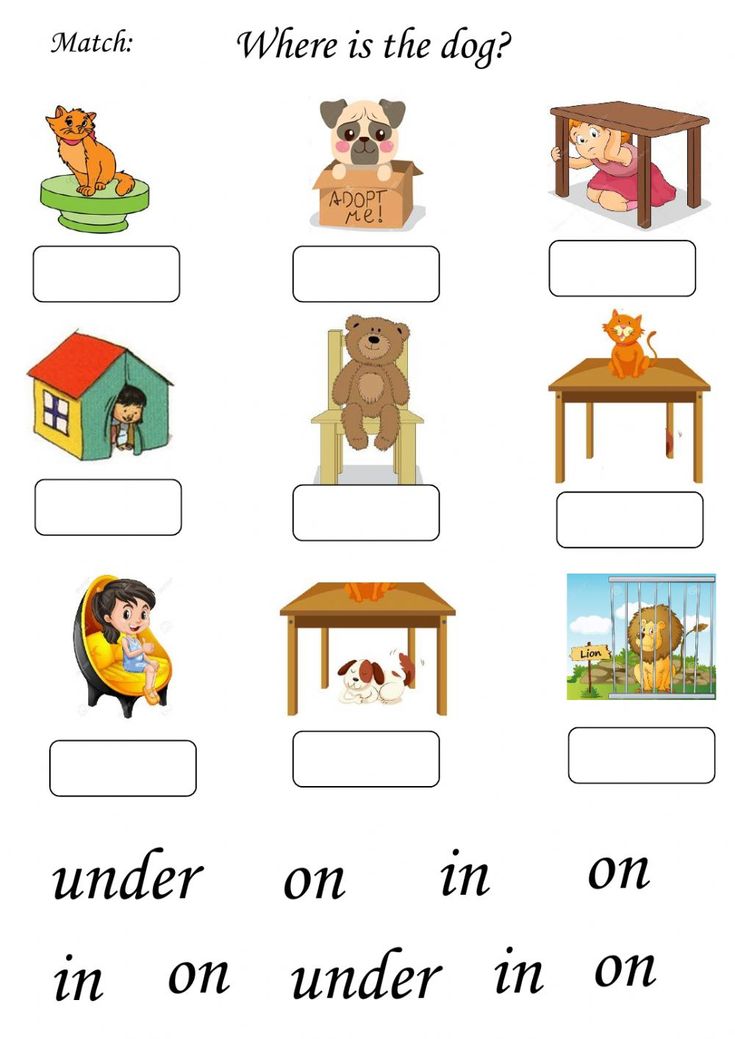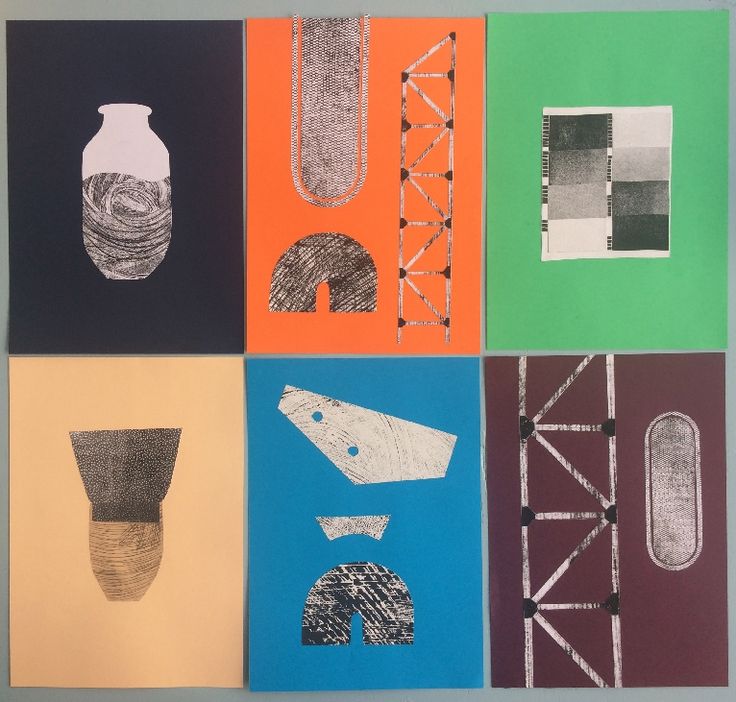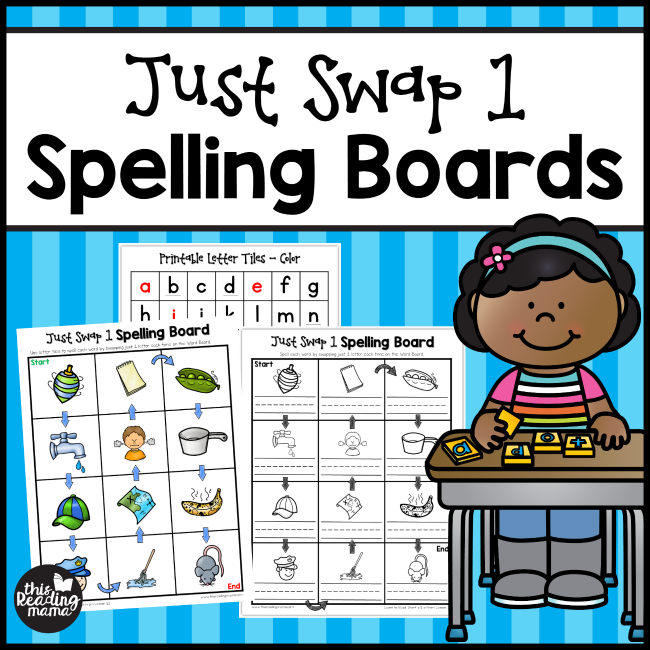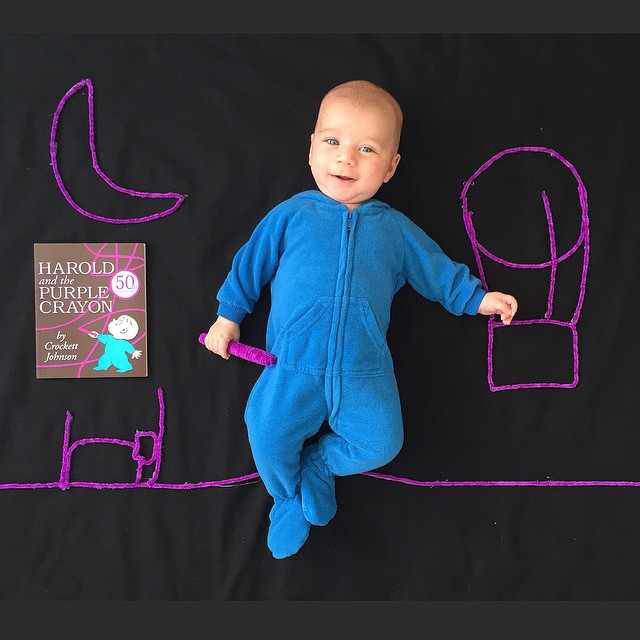Sentences for and
English Sentences with Audio Using the Word "And"
English Sentences with Audio Using the Word "And"- Come and see me.
- Come and help us.
- Shut up and listen!
- Go and wake Mary up.
- Go and see who it is.
- He and I are cousins.
- Don't drink and drive.
- He can read and write.
- He likes ham and eggs.
- Tom and I are friends.
- I tried again and again.
- Name and address, please.
- Please sit here and wait.
- Speak slowly and clearly.
- Come and see me right now.
- Go and sit by your father.
- He likes bread and butter.
- Mary and Jane are cousins.
- Take a breath and hold it.
- All's fair in love and war.
- Come over here and join us.
- I sat between Tom and John.
- It was nice and cool there.
- Kim and I are the same age.
- She looks nice and healthy.
- Stay calm and do your best.
- Stay here and wait for him.
- Tom and I are good friends.
- You and I are the same age.
- I got a shave and a haircut.
- She hit him again and again.
- Do your best and don't worry.
- He is a teacher and novelist.
- John and Ann like each other.
- She is working night and day.
- Tom heard this and got angry.
- I went there by bus and train.
- Life is full of ups and downs.
- Life is not all fun and games.
- Tom and John are good friends.
- You and he are both very kind.
- He likes geography and history.
- He may come and see us tonight.
- He tossed and turned all night.
- I lent Tom and Paula my camera.
- I stopped smoking and drinking.
- Joe and I saw a lion yesterday.
- Mary and I became good friends.
- She has a soft and clear voice.
- The sky grew darker and darker.
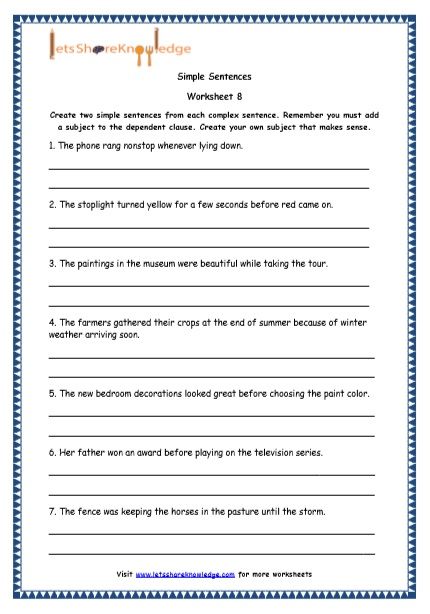
- Tom and Frank are good friends.
- All plants need water and light.
- Come and see me once in a while.
- Turn the knob and open the door.
- Why don't we go and see a movie?
- A ring and some cash are missing.
- He bought a lot of flour and oil.
- I passed the exam and so did Tom.
- I'm sick and tired of hamburgers.
- It was getting louder and louder.
- Mary and I are in the same class.
- May I have your name and address?
- She put on her coat and went out.
- Tom and I have nothing in common.
- We got behind the car and pushed.
- Come and see me any time you like.
- Come and see me at eleven o'clock.
- He applied for the job and got it.
- He has a large house and two cars.
- Janet bought a skirt and a blouse.
- She got on her bike and rode away.
- She hates fish and never eats any.
- Take a deep breath and then relax.
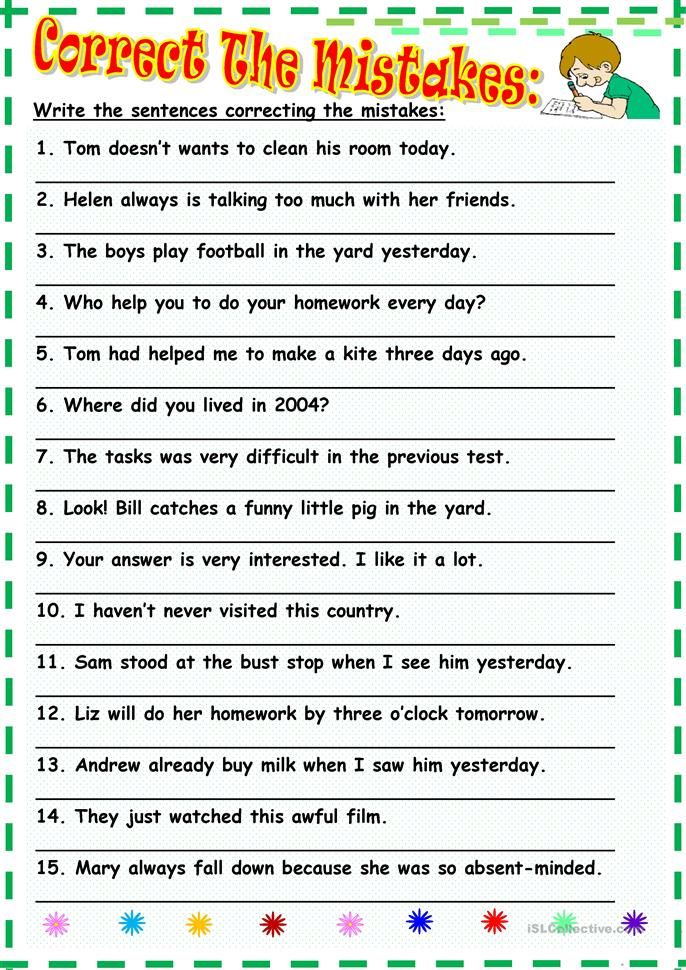
- Come and see me when you have time.
- He stood up and took a deep breath.
- I have a fever and I ache all over.
- I hear from him every now and then.
- She got into the car and drove off.
- That nurse is very kind and polite.
- Do you know where Jim and Nancy are?
- He appears to be strong and healthy.
- He beat the odds and was successful.
- He studied hard and passed the test.
- He was sitting between Mary and Tom.
- I have a sore throat and runny nose.
- I left the rest to him and went out.
- I should go home and get some sleep.
- She invited Tom and me to the party.
- The horse stopped and wouldn't move.
- She argued with him and then hit him.
- I forgot the key and went back for it.
- She sat next him and listened quietly.
- We provided food and clothes for them.
- I have a sore throat and a slight fever.
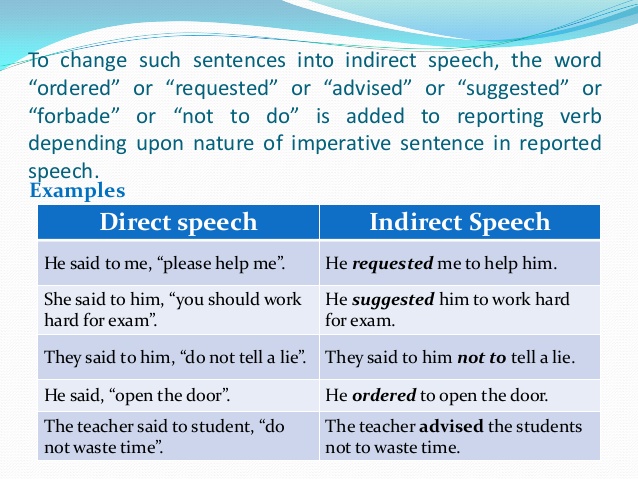
- I have aches and pains all over my body.
- I hear that Bob and Lucy have broken up.
- I will write down your name and address.
- Won't you come in and have a cup of tea?
- You can't have your cake and eat it too.
- Come and visit us in Paris sometime soon.
- He finished the beer and ordered another.
- He thought it over and decided not to go.
- I can see a lady and two dogs in the car.
- She has a cold and is absent from school.
- I asked him to come with me and he agreed.
- I think Tom and Mary are secretly married.
- May I have a pillow and a blanket, please?
- Roger slipped on the ice and hurt his leg.
- He writes to his mother every now and then.
- I always confuse John and his twin brother.
- My father and mother have a big farm there.
- Please plan to leave between 6:00 and 7:00.
- She confronted him and demanded an apology.
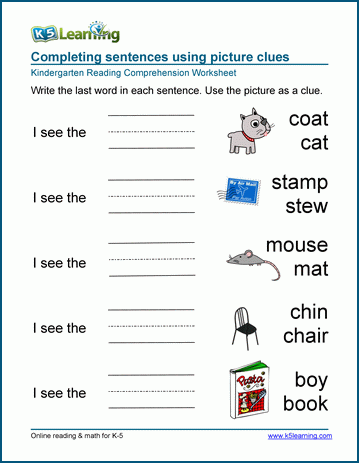
- There is an urgent need for food and water.
- He added a little sugar and milk to his tea.
- He sleeps during the day and works at night.
- How often and how much should I feed my dog?
- I bought a watch and I lost it the next day.
- Ken and Joe went to the park to play tennis.
- She worships him and the ground he walks on.
- Earthquakes and floods are natural disasters.
- How about stopping the car and taking a rest?
- I always have coffee and toast for breakfast.
- I do not and never will feed my dog raw fish.
- She looked at him and knew that he was angry.
- The bank opens at 9 a.m. and closes at 3 p.m.
- Tom and Sue have known each other since 1985.
- He played the guitar and she played the piano.
- He reached across the table and shook my hand.
- I feed my cat every morning and every evening.
- I like to give gifts to my family and friends.

- Tom is caught between a rock and a hard place.
- He can speak both English and French very well.
- I can't tell Tom and his younger brother apart.
- I had a headache, and I took the day off today.
- I have to check and see what the contract says.
- John and Mary have known each other since 1976.
- She lost her money, her family and her friends.
- You should plan to leave between 6:00 and 7:00.
- Even with all his wealth and fame, he's unhappy.
- I have a lot of money and enough time to use it.
- Let's wrap up this work now and go out drinking.
- She held him tightly and never wanted to let go.
- Some students like mathematics and others don't.
- Tom likes oranges and eats three or four a week.
- Tom took off his clothes and put on his pajamas.
- You've got to give up gambling once and for all.
- She stared at him and that made him very nervous.
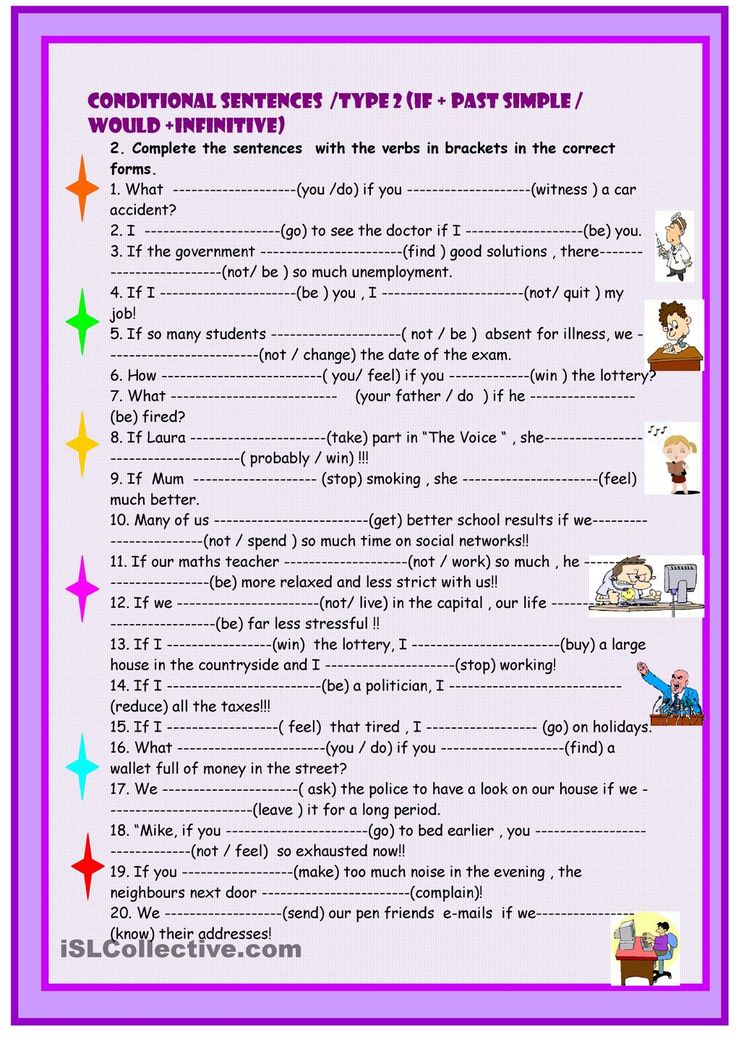
- We did a lot of singing and dancing at the party.
- Jack and Betty have been going steady for a month.
- Tom likes to stay home and read books on weekends.
- I intend to phone Tom tomorrow and ask him to help.
- I'm going to call Tom tomorrow and ask him to help.
- Let's spread the map on the table and talk it over.
- There has always been war and there always will be.
- Tom came on Monday and went back home the next day.
- I haven't eaten since breakfast and I'm very hungry.
- Let's spend less time arguing and more time working.
- She watched him and the other boys playing baseball.
- The boy took off his clothes and put on his pajamas.
- Why don't you pull over and take a rest for a while?
- He caught the first train and got there just in time.
- He complained about the room being too hot and humid.
- I checked my briefcase and umbrella in the cloakroom.
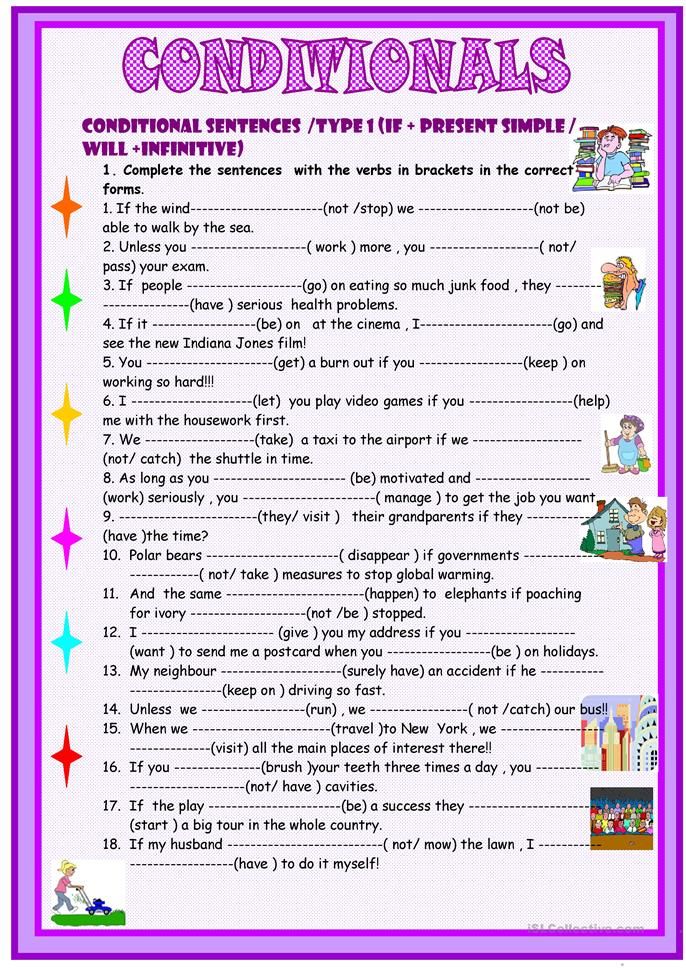
- I plan to telephone Tom tomorrow and ask him to help.
- Jim looked right and left before he crossed the road.
- Last Sunday, Mary and I went to the library together.
- She knelt beside him and asked him what his name was.
- She walked up to him and asked him what his name was.
- Susie doesn't speak Japanese, and Tom doesn't either.
- For some reason, I'm wide awake and can't fall asleep.
- She grows flowers such as tulips, pansies and daisies.
- Let's go out and eat dinner together from time to time.
- She tells him to give her all of his salary and he does.
- Tom came on Monday and went back home the following day.
- You should spend more time outside and less time inside.
- I canceled my hotel reservations and stayed with friends.
- I opened the door and saw two boys standing side by side.
- She calls him every night and talks for at least an hour.
- She grabbed him by the hand and pulled him onto the boat.
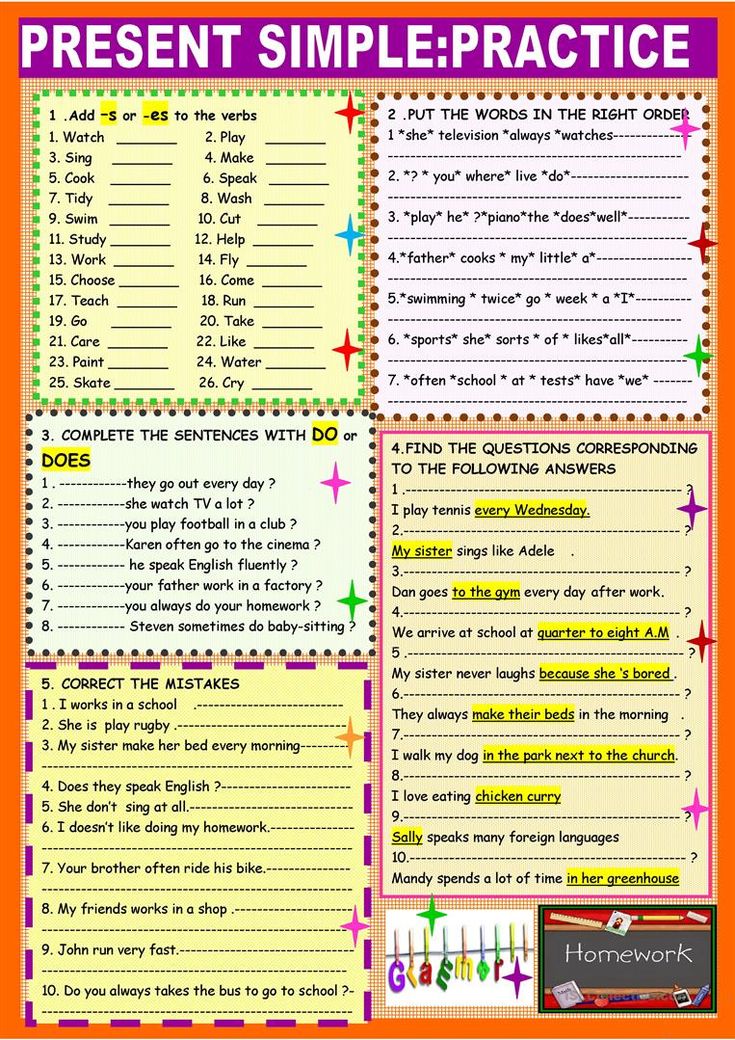
- Today I just feel like staying at home and doing nothing.
- Tom decided to give up city life and live in the country.
- Have you told everyone when and where the meeting will be?
- I always thought that Shirley and Alan would get together.
- I'd like to spend less time at work and more time at home.
- Tom and Mary have been married for more than thirty years.
- I don't have any money and I don't have any friends either.
- I owe Mary some money and must pay her back by next Monday.
- Spend your time wisely and you'll always have enough of it.
- A water molecule has two hydrogen atoms and one oxygen atom.
- Last night was very hot and muggy, so I didn't sleep so well.
- Open the window and let some fresh air into the room, please.
- He stopped smoking because his wife and children asked him to.
- Go straight down this street and turn right at the third light.
- I plan to contact Tom by phone tomorrow and ask him to help us.
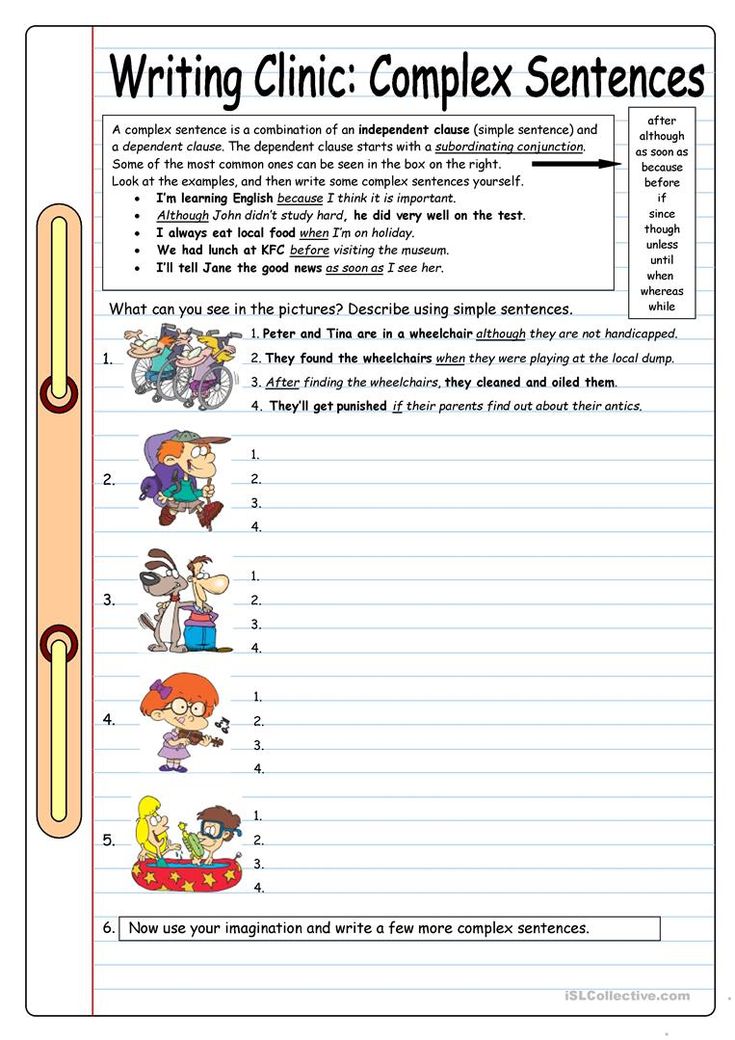
- I put some cookies on the table and the kids ate them right up.
- Last night was very hot and muggy and I didn't sleep very well.
- Mary and I have been acquainted with each other for many years.
- Nowadays more and more people prefer country life to city life.
- Stop beating around the bush and tell us what you really think.
- Come and help us.
And, And, And the 30 Minute Lesson to End Run-On Sentences Using And — Speech Language Literacy Lab
A sentence expresses a complete thought, but what if a complete thought is made by attaching strings of ideas using "and?" It's a run-on. Beginning writers often have struggle with this abstract concept. Here is a one lesson strategy to eliminate run-ons using "and."
Beginning writers often have struggle with this abstract concept. Here is a one lesson strategy to eliminate run-ons using "and."
Initial Lesson: Bridges
1. Teach Vocabulary Word Bridge (2 minutes): Bring pictures of bridges and discuss the purpose of a bridge (i.e. to connect pieces of land or islands). What would happen if there were lots of small islands connected with bridges? How would it feel to go across so many bridges?
2. Teach AND is a Bridge (2 minutes): Show the word "and" inside a bridge shape. Teach the word "and" is a bridge. "And" connects ideas.
3. Teach the General Rules (2 minutes):
- "And" can only be used once in a sentence to connect big ideas
- "And" can be used two times in a sentence when making a list of things
- Just like too many bridges, too many "ands" make a sentence hard to follow
4. Practice Combining Simple Sentences (12 minutes) Provide students with a variety of 2-3 sentences.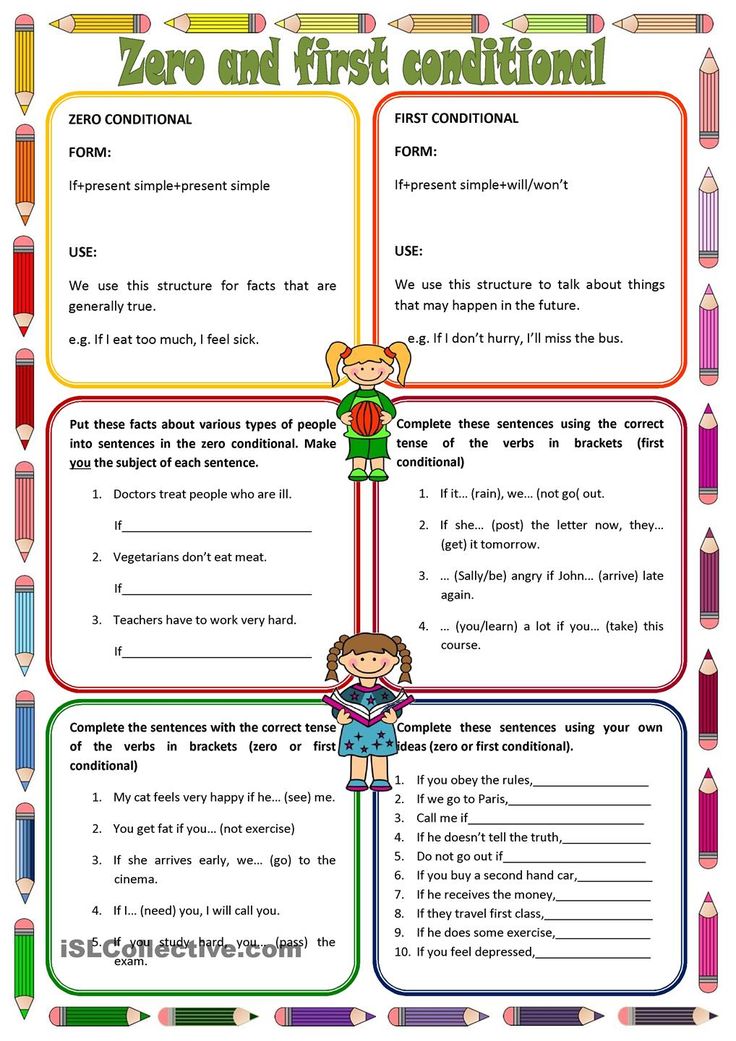 Have students practice combining the sentences using the word "and."
Have students practice combining the sentences using the word "and."
For example, look at the sentences below:
- The cake tastes good. I ate the cake
- I went running. I went swimming.
- My friend likes to swim. My friend likes to run. My friends likes to play.
How can students combine these sentences in different ways? At this point, which combined sentence is "better" is not important. The goal is for students to see how "and" can function in a sentence.
Here are some sample ways to combine the sentences from above:
- The cake tastes good, and I ate the cake. The cake tastes good, and I ate it.
- I went running, and I went swimming. I went running and swimming.
- My friend likes to swim, run, and play. My friend likes to swim, my friend likes to run, and my friend likes to play.
5. Practice Correcting Sample Sentences (12 minutes)
The next step is for students to correct run-on sentences.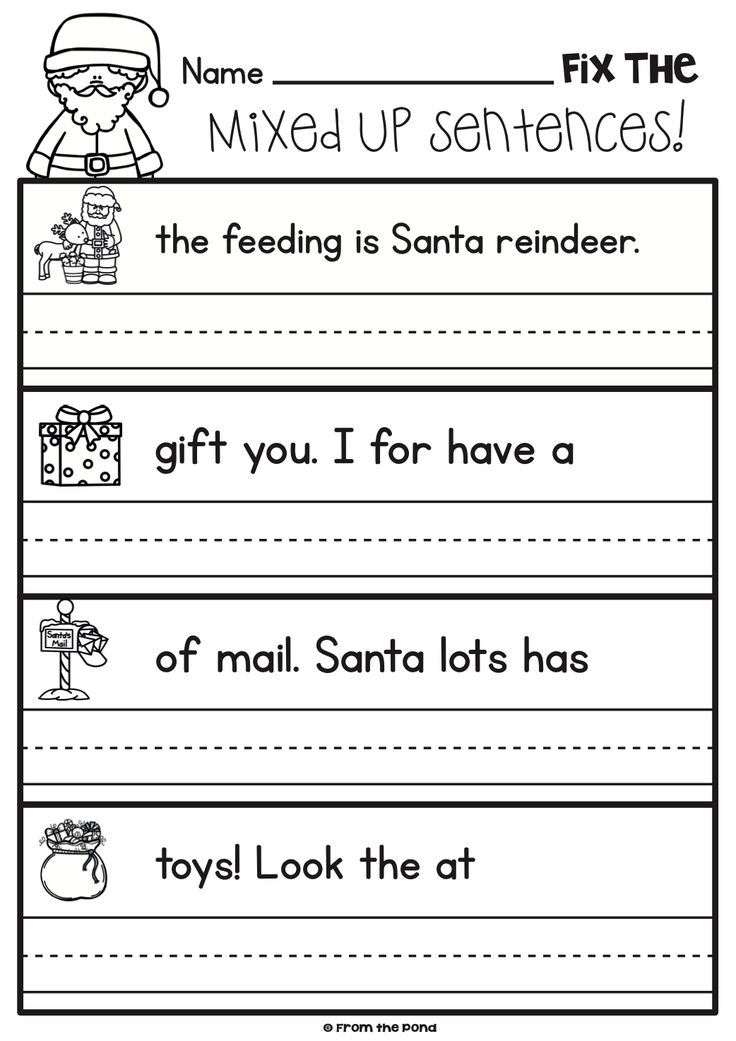 The teacher should create a list with some run-on sentences and some correct sentences. The students should go through the list, identify the run-ons, and fix them. At this point, it is not important to focus on whether or not sentences combine redundant information (e.g. I like to run, and I like to read.) Teach this in a follow up lesson.
The teacher should create a list with some run-on sentences and some correct sentences. The students should go through the list, identify the run-ons, and fix them. At this point, it is not important to focus on whether or not sentences combine redundant information (e.g. I like to run, and I like to read.) Teach this in a follow up lesson.
Follow up Lesson: Find Mistakes in Papers
1. Eliminate Redundant Information
Once students understand the basic idea of combining with "and," they will often need additional information on eliminating extraneous information. For example, "I like to run, and I like to play" is technically correct. However, since information is repeated twice, it is a wordy sentence. Teachers can cue students to eliminate redundant information by lining up the sentences and underlining the redundant information.
I like to run
and I like to read
Find the words that is the same. Underline them.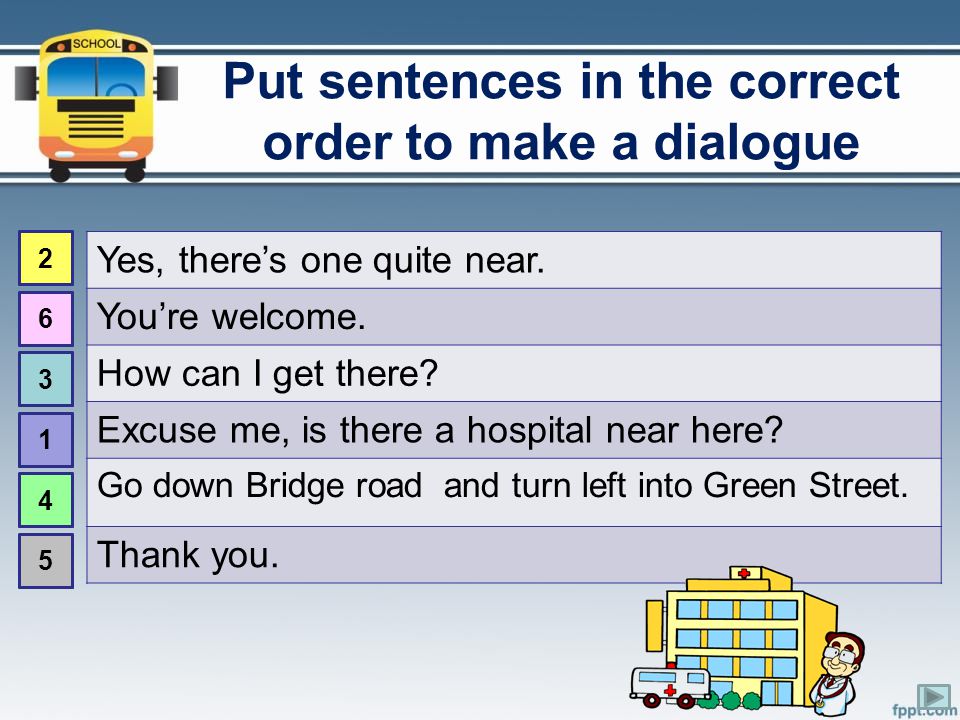 Make this sentence shorter without the underlined words.
Make this sentence shorter without the underlined words.
2. Edit Peer Work
Once students can identify run-ons and fix them in structured practice, students can become "editors" for their peers. An entire lesson can be devoted to editing peers work just for run-ons.
Re-Teaching Ideas
For the student who struggles with oral language, these ideas may still be hard to grasp. Here are some multi-sensory re-teaching ideas.
1. Practice Creating Simple Sentences on Notecards
Write a variety of nouns with articles, verbs (with or without infinitives) and prepositional phrases on note cards. Then, have students pick one of each card and create a simple sentence on a new notecard (e.g. the dog likes to run in the park.)
2. Line Up Sentence Cards and Draw Bridges
Have the student pull two simple sentence note cards and practicing combining them. The teacher can also create a notecard with the word bridge "and" and another note card with a comma.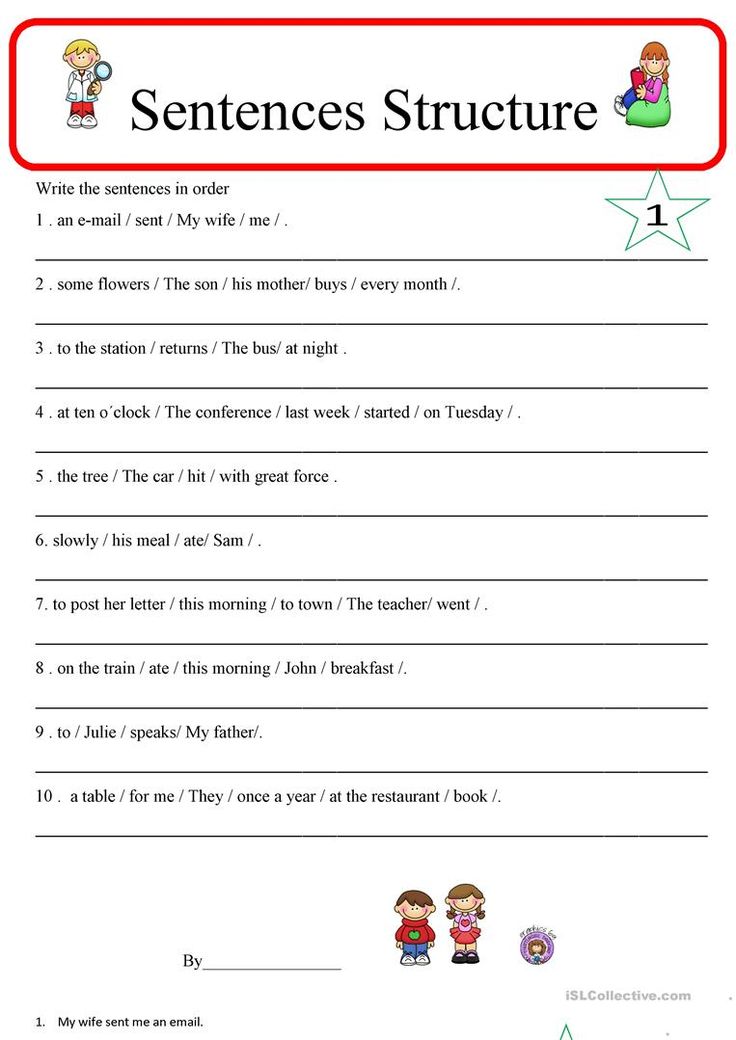 This will help the student visualize the function of these parts of speech. It will look like this:
This will help the student visualize the function of these parts of speech. It will look like this:
Extension Lesson to Fix Errors in Grammatical Form
Another common mistake with combining information using "and" is that students do not maintain the same grammatical form. For example, "I like to run, read, and playing soccer" is grammatically incorrect because "to run, to read" and "playing soccer" do not match in form. This error can be corrected by having students dissect combined sentences into their individual kernel sentences (or parts), then line up the sentences and look to see if the combined parts look the same.
For example, look at the sentences below:
- I like to run.
- I like to read.
- I like playing soccer.
In order to combine elements, each sentence must be in same grammatical form. This most commonly means that you can not combine parts starting with a preposition with parts that do not start with a preposition.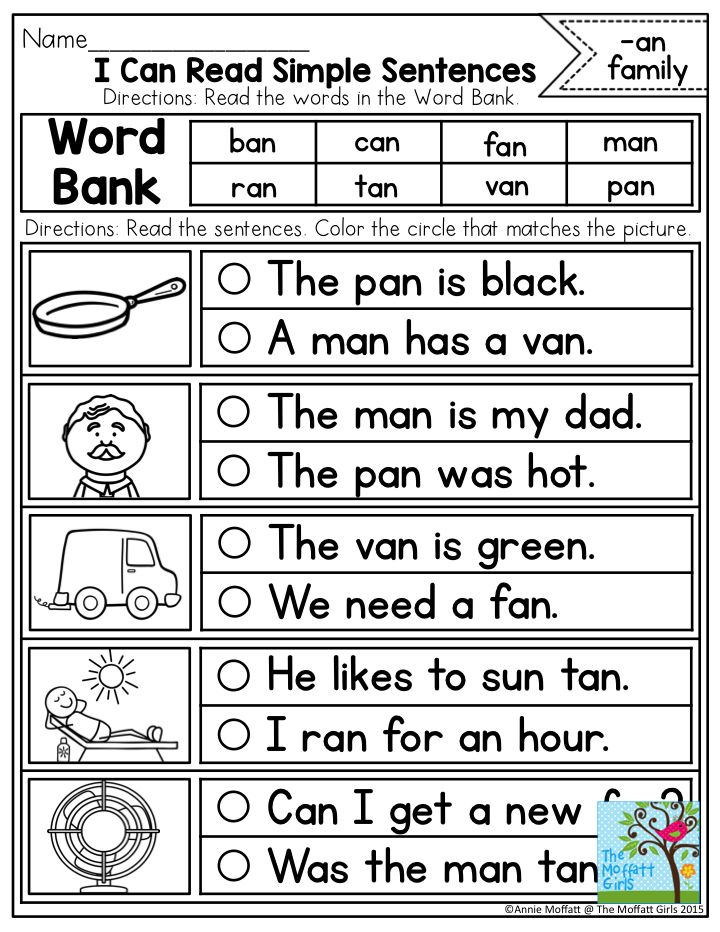
To troubleshoot specific grammar questions, please feel free to contact us at [email protected]
Like us on facebook for more speech, language, and literacy ideas
References
Saddler, Bruce; Preschern, Jennifer. " Improving Sentence Writing Ability Through Sentence-Combining Practice." Teaching Exceptional Children, 2007.
Offer. Proposal members: main and secondary
- Proposal members
- Main members: subject and verb
- Types of predicates
- Secondary members of the proposal
- Definition
- Supplement
- Circumstance
Sentence is a combination of words or a single word that expresses a complete thought.
In common speech, the end of a sentence is expressed in voice (intonation), a stop (pause) is made between sentences. In writing, one sentence is separated from another by a dot ( . ), question mark ( ? ) or exclamation point ( ! ).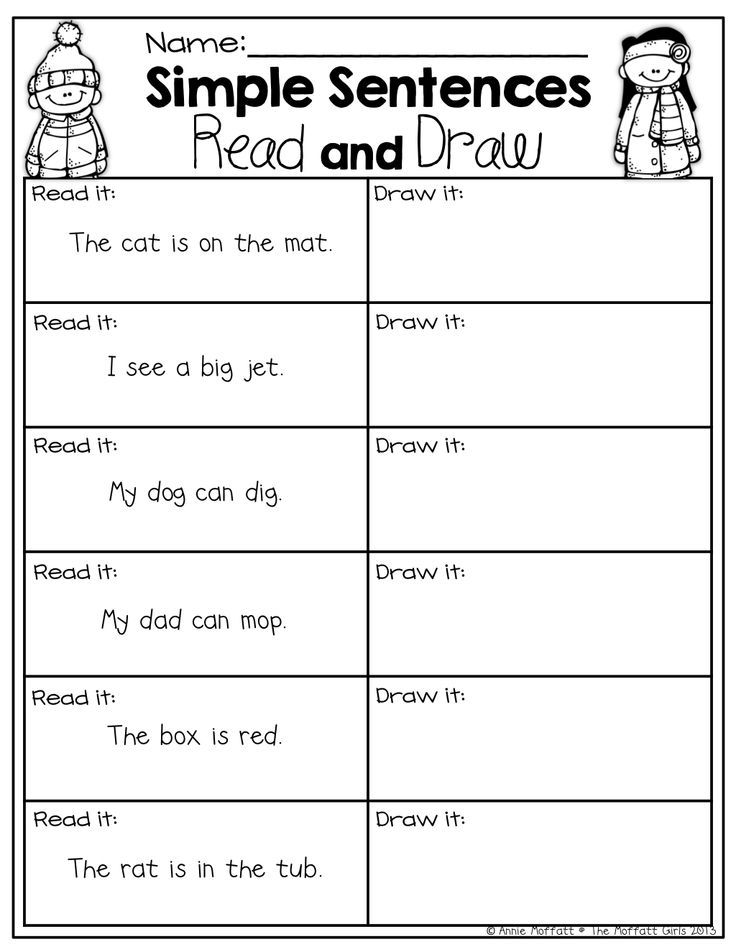 The first word in each sentence is capitalized.
The first word in each sentence is capitalized.
H Ashka is on the table .
day off today !
By How long do we have to wait for ?
The words in the sentence are connected grammatically, that is, with the help of endings and prepositions, as well as in meaning.
Not a sentence:
- A group of unrelated words: table, cup, worth .
- A group of words that do not express a complete thought: a cup stands on .
Sentence members
Sentence members are words that are part of a sentence that answer a question.
Example. In the offer
Our family moves from the village to the city in autumn
six members.
- Whose family? - Our .
- Who is moving? - Family .
- When does he move? - Autumn .
- What is the family doing? - is moving.
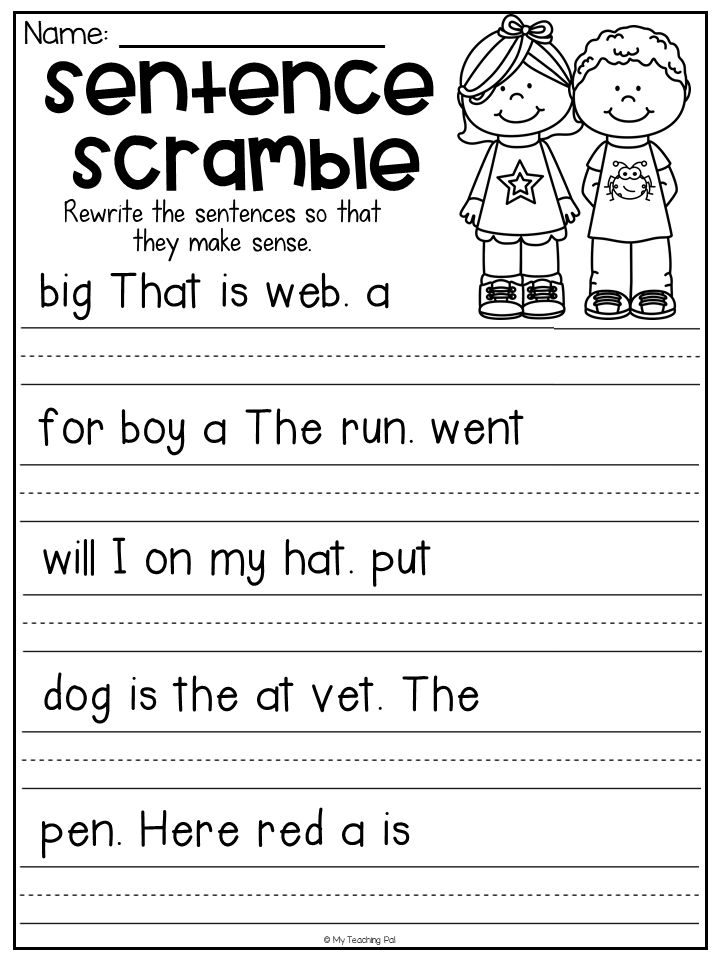
- Where is he moving from? - From the village .
- Where is he moving? - To the city .
The words from and in do not answer questions and therefore are not independent members of the sentence, but are part of those members to which they belong.
Members of the proposal are divided into main and secondary .
Main members: subject and predicate
The main members of sentence are subject and predicate. The subject and predicate form the grammatical basis of a sentence. The grammatical basis of the sentence is the main part of the sentence, which consists of its main members: the subject and the predicate.
Subject is the main member of the sentence that answers question who? or what? The subject names an object that performs an action, experiences some state, has a certain attribute. The subject is underlined with one line: subject .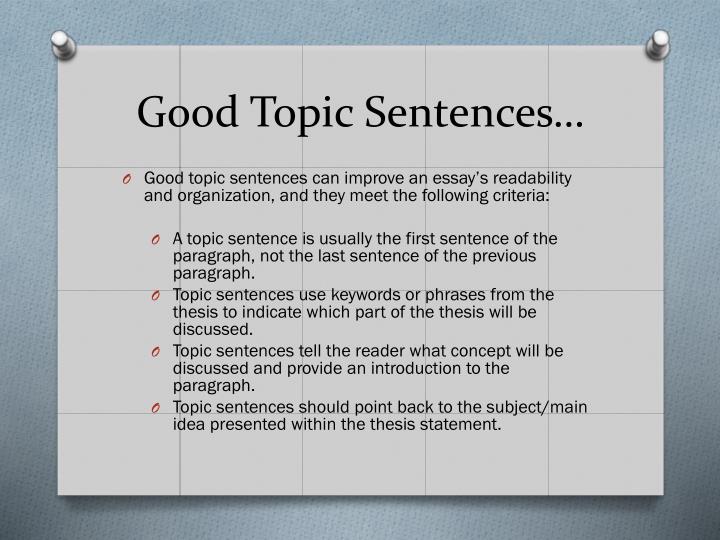
The subject is usually expressed by a noun or a pronoun in the nominative case.
Example.
It rained all day. What was going on? — Rain .
We are going to the cinema. Who's coming? - We are .
The predicate is the main member of the sentence, which answers one of the questions: what does it do? what is being done? what? who is he? what? The predicate is connected with the subject and names its action, state or sign. The predicate is underlined with two lines: predicate .
The predicate is usually expressed by a verb, but it can also be expressed by a noun and an adjective. From the subject to the predicate, you can ask a question.
Example.
The sun is bright (what is it doing?) is shining .
On the street (what's going on?) it's getting dark .
flower (what?) beautiful .
Mendeleev - (who is he?) scientist .
Gold - (what is it?) metal .
Subject and predicate are connected with each other in meaning and grammatically.
Types of predicates
Secondary members of a sentence
Secondary members of a sentence are words that explain the predicate, subject, or one of the secondary members.
Example. In the sentence
the mischievous puppy looked curiously at a new toy
subject puppy and predicate looked at ; secondary members of the sentence: naughty, curious, new, toy .
- The word mischievous explains the subject puppy showing which puppy was looking at.
- The word is curious explains the predicate looked at and shows how the puppy looked at it.
- The word toy explains the predicate looked at and shows that the puppy looked at it.
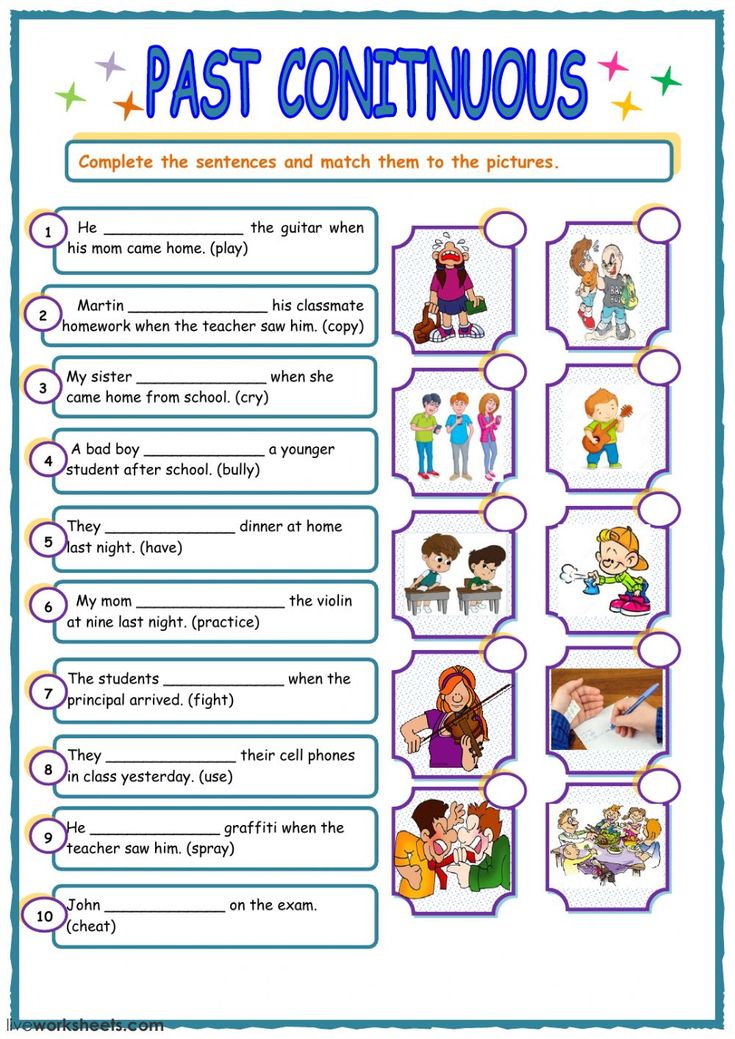
- Word new explains minor member of sentence toy and shows which toy the puppy was looking at.
The relationship of the members of the sentence to each other can be depicted as follows:
Any minor member depends on any other word in the sentence, and the subject and predicate do not depend on any other words and are thus the basis of the entire sentence. The subject and predicate and without minor members can make up a sentence.
The secondary members of the sentence, depending on how they explain the other members of the sentence, are divided by determinations , additions and circumstances .
Definition
Definition is a minor member of a sentence that denotes a sign of an object and answers the questions: what? which the? whose? The definition is underlined with a wavy line: definition .
The definition refers to a noun.
Example.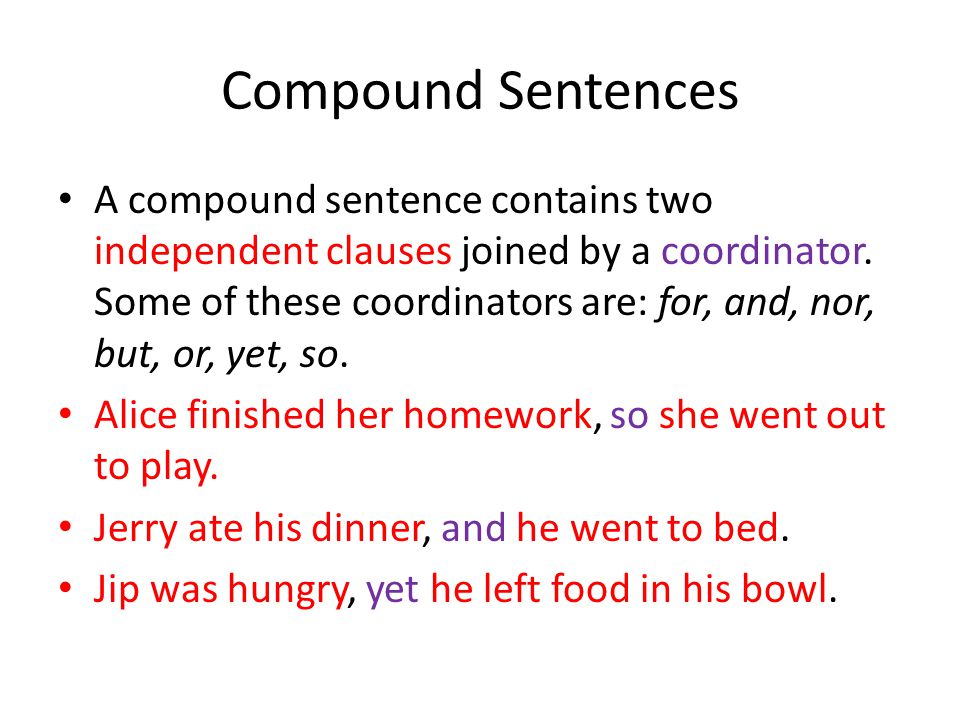
Bright stars shone in the night sky.
What are the stars? — Bright . What is the sky? — Night .
My hat fell into a puddle.
Whose hat? — My .
Marina is in her eighth year.
What year? - Eighth .
Supplement
Supplement is a minor member of the sentence that designates the subject and answers the questions of indirect cases: whom? what? to whom? what? whom? what? by whom? how? about whom? about what? The addition is underlined with a dotted line: addition .
The object usually refers to the verb.
Example.
I am interested in geography.
Interested in what? - Geography .
We met dad at the station.
Have you met anyone? - Pope .
Misha called a friend.
Called whom? — Friend .
Circumstance
Circumstance is a minor member of the sentence, which indicates how and under what circumstances (that is, where? when? why? , etc.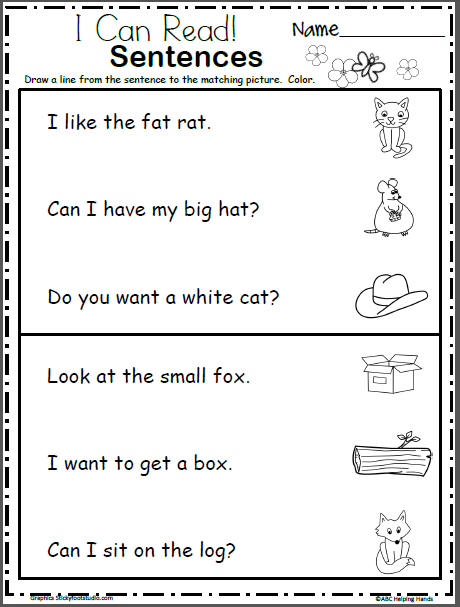 ) an action is performed. The circumstance answers the questions: how? how? where? when? where? where? why? why? . The circumstance is underlined by a dotted line with a dot: circumstance .
) an action is performed. The circumstance answers the questions: how? how? where? when? where? where? why? why? . The circumstance is underlined by a dotted line with a dot: circumstance .
The circumstance usually refers to the verb.
Example.
In winter we go skiing.
Ride when? - Winter .
From a cozy shop we went out to a noisy street.
Where did you come from? - From shop . Went out where? - To the street .
The fox crept quietly and cautiously.
Creeping up how? — Quietly and carefully .
Russian language Offer. Main and secondary members of the proposal
Subject: Proposal. The main and secondary members of the sentence.
Lesson progress
- Organizational moment. Setting the objectives of the lesson.
Introduction
Collect syllables and learn topic of the lesson.
In order to communicate with each other, we need speech . Our speech consists of sentences .
Topic of our lesson: " Offer". And we will work under this motto :
Don't be lazy, don't yawn,
And on the topic "Offer"
Everything you know, remember!
What is offer ?
Which punctuation marks are placed at the end of a sentence?
What does consist of?
Complete sentences below.
Pinocchio writes. In this offer two words.
Malvina is reading a book. A in this sentence three words .
Sentence is a word or several words that express a complete thought .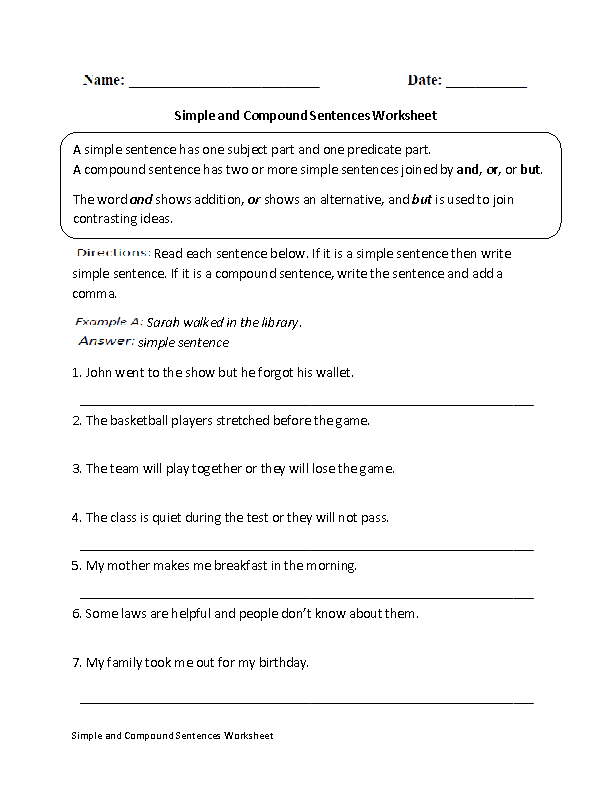
2. Updating knowledge
Explanation of material
Words are like scattered beads. Let's try to connect beads into beads. It should be remembered that beads are connected by to each other with a thread. If you string them on a thread, you get sentence: ~
An old oak grew near the house.
Pay attention ! When you made up the sentence, you had to combine the words with the meaning of .
The sentence consists of words connected with each other within the meaning of .
Listen to the poem.
Wind on the sea walks
And the boat drives.
He runs in the waves
On swollen sails.
What fairy tale is this passage from and who is its author?
How many offers does it have?
What do they say?
In each sentence there is an important word that expresses the main idea of the sentence.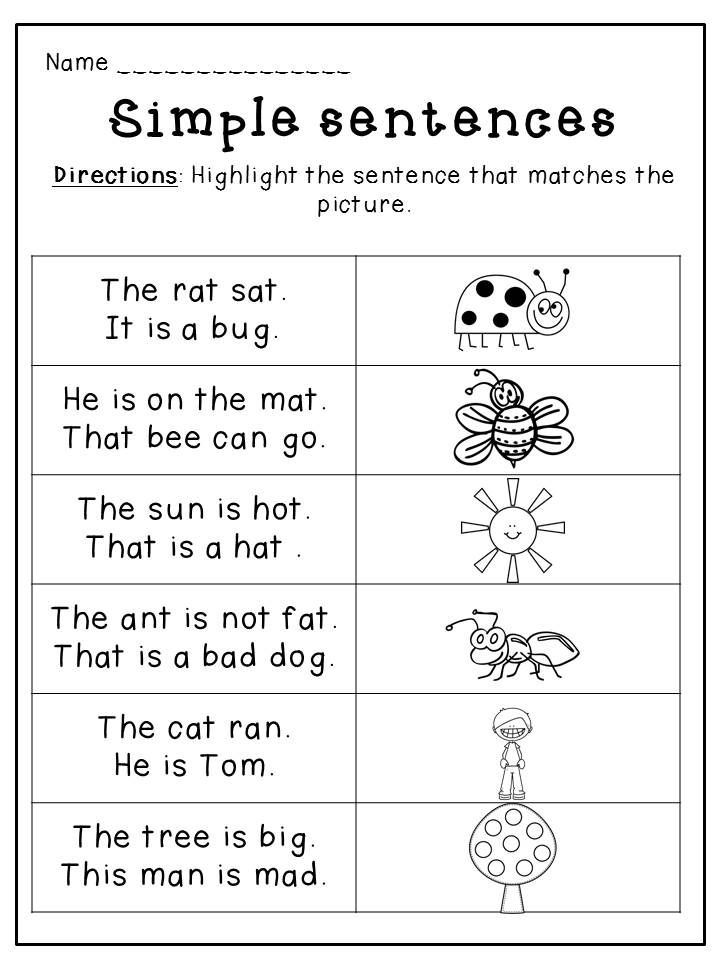
By singling out the word wind , we tell what is talking about in the sentence.
Highlighting the words walks and urges, we inform what exactly does the wind.
Please note that is spelled as wind.
Wind. Remember spelling letter e in place of unstressed vowel.
And in a related word ve-rock two letters are written e denoting unstressed vowel sounds. These words are dictionary , their spelling must be memorized .
What is the meaning of word wind ? ~
Wind is the movement of the air flow in the horizontal direction .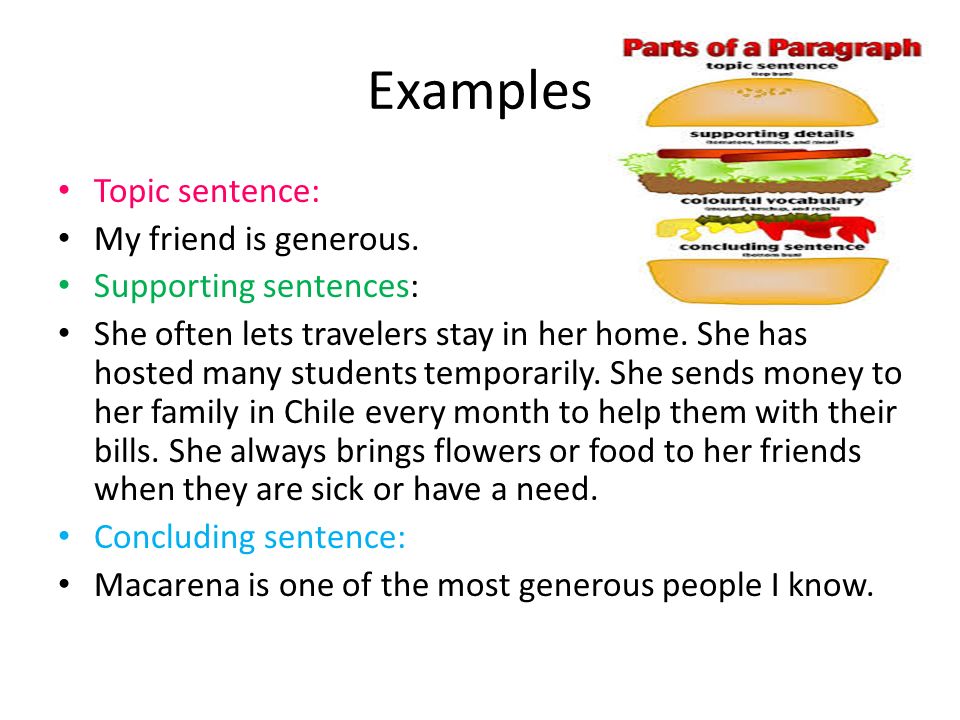
Let's pick up words close in meaning to or synonyms : ~ wind, whirlwind, hurricane.
Calligraphy.
Write the letter into and the syllables with this letter.
On the second line write down new vocabulary words wind, breeze .
How do you understand the meaning of expressions: Throw words to the wind?
Some people like to make promises without thinking about the possibility of keeping them. Such people waste efforts in vain because their words mean nothing .
And vice versa , say: ~ " Not throw the words but into the wind."
This means being the owner of your word , fulfill given promises.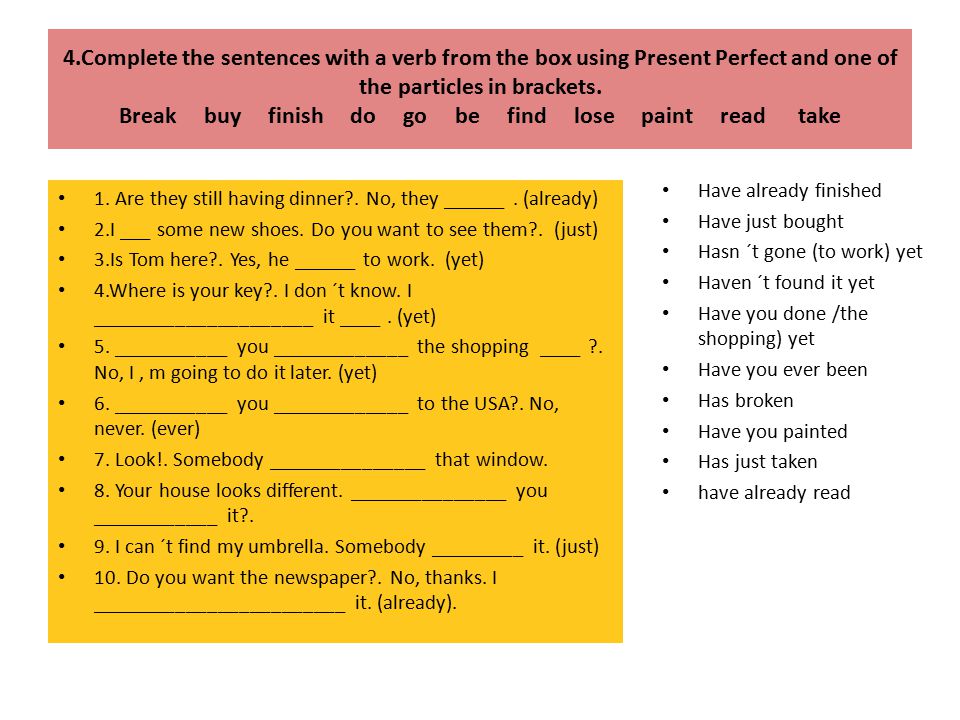
Write this expression on a separate line. Explain the spelling of the underlined letters.
Each offer has its own borders .
In oral speech we designate the boundaries of a sentence with a special intonation.
For example: How quickly summer flew by. Autumn has already come.
Downvote at the end of a sentence . One sentence from another is separated by with a small pause.
In written speech the end of a sentence is indicated by punctuation marks.
What punctuation marks are put at the end of sentences?
Period (.), exclamation (!) and question marks are punctuation marks that are placed at the end of the sentence.
Of course, is the most important point.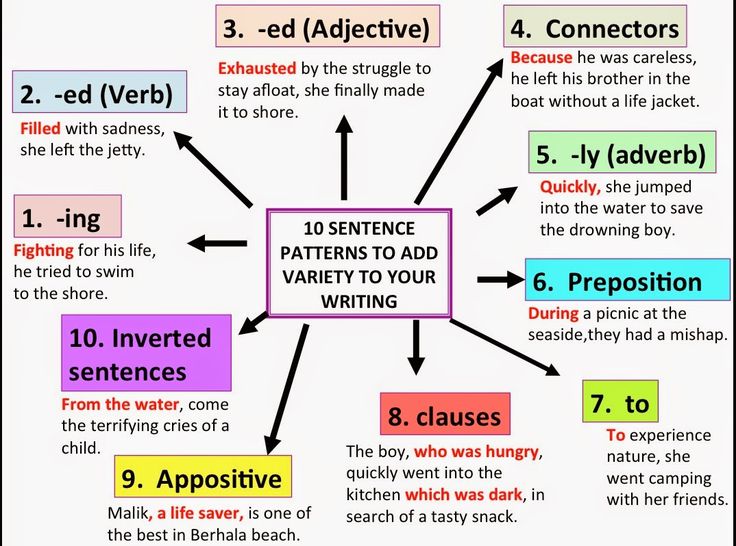
You can't live without it.
They finish her line,
It is always in the text.
Exclamation mark costs
to express excitement,
Alarm, admiration,
Victory!
When a question mark
He gets up on the line,
He will certainly then
He asks everyone questions.
How? Where? How?
Why? What for?
Bent like a rocker -
Everyone can see it.
0020 . For example: We were walking in the autumn forest.
If the sentence is pronounced with a strong feeling of (with joy, grief, appeal), then at the end of the sentence is an exclamation mark . For example: How beautiful it is here!
If sentence contains question , then a question mark is placed at the end of the sentence.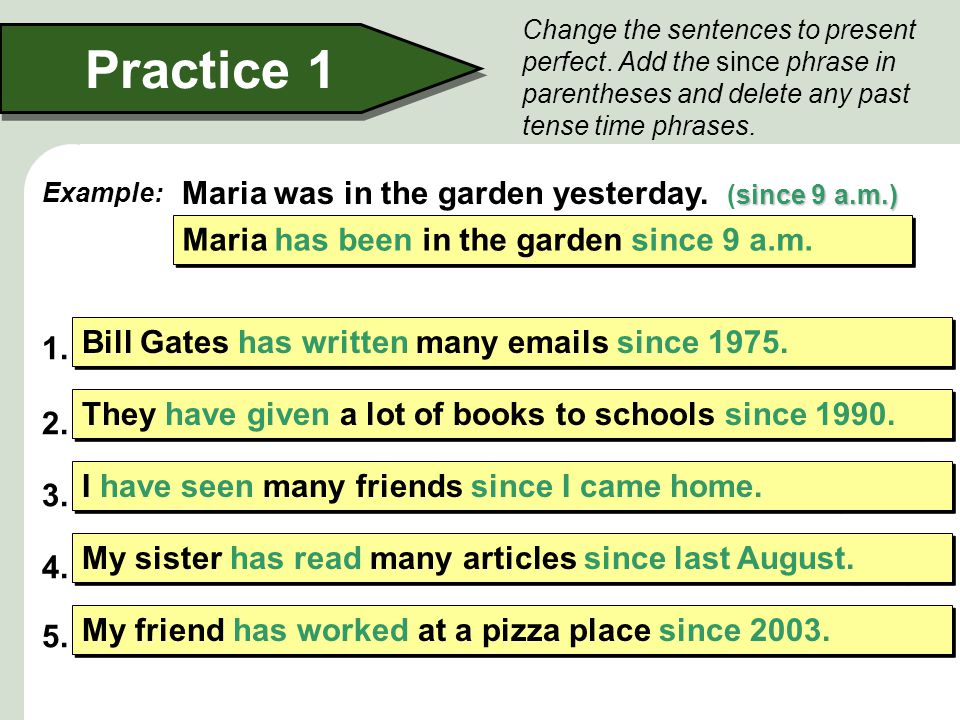 For example: Have you been to the autumn forest?
For example: Have you been to the autumn forest?
Write down these sentences . At the end of sentences, put the appropriate punctuation marks.
Listen to the poetic lines of Alexei Pleshcheev.
Note the intonation.
Boring picture!
Clouds without end,
The rain is pouring,
Puddles on the porch.
What are you visiting early,
Autumn, come to us?
Still asks the heart
Light and warmth!
Write down one quatrain .
Explain the placement of punctuation marks at the end of sentences.
Physical education game.
Children accompany the poem with appropriate movements.
"RAIN"
drop one, drop two.
Very slow at first.
And then, then, then
Run, run, run.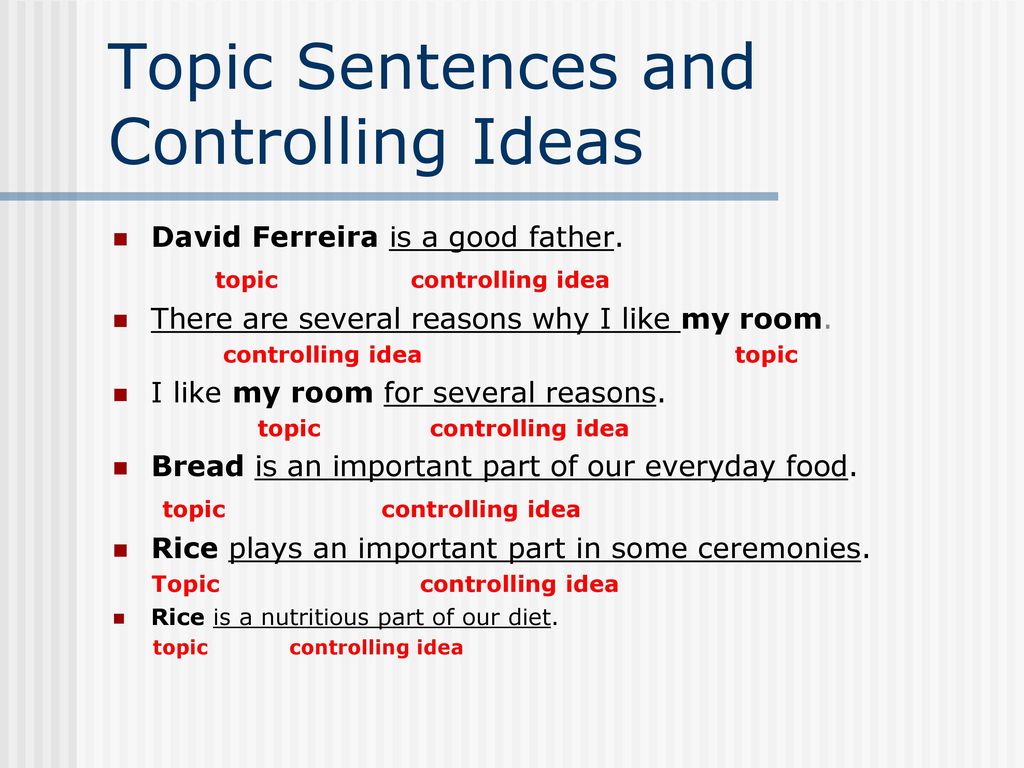
We opened our umbrellas,
We sheltered ourselves from the rain.
Explanation of the material (2)
Compare the sentences:
The cranes are flying away.
Cranes fly away in autumn.
Cranes fly south in autumn.
About room is mentioned in every sentence? ~
Did you notice that every sentence says about cranes .
Cranes (what are they doing?) fly away.
These words are repeated in every sentence and are the main members of each sentence.
In sentence there are always main members. They form the basis of the offer. It contains the main meaning of the sentence: the cranes are flying away. ~
Words a ~ fall and south do not constitute the stem of the sentence and are secondary members. Secondary members explain the main members of the proposal, clarify them.
Secondary members explain the main members of the proposal, clarify them.
Departure (when?) in autumn. (where?) are flying south.
Complete sentences . Insert the appropriate words from the right column into them.
Who gives a voice like:
Cat (what is doing?) meow
Mouse (what is doing?) 904 Poron
Wolf (what is doing?) howls
Frog (what is doing?) Coopet
COMPLY Scheme:
Who? ~ What does it do?
The words that make up each sentence are the main members.
The main members of the sentence - is the subject and the predicate.
The main member of the sentence, which means about whom or what is talking about in the sentence, is called subject to .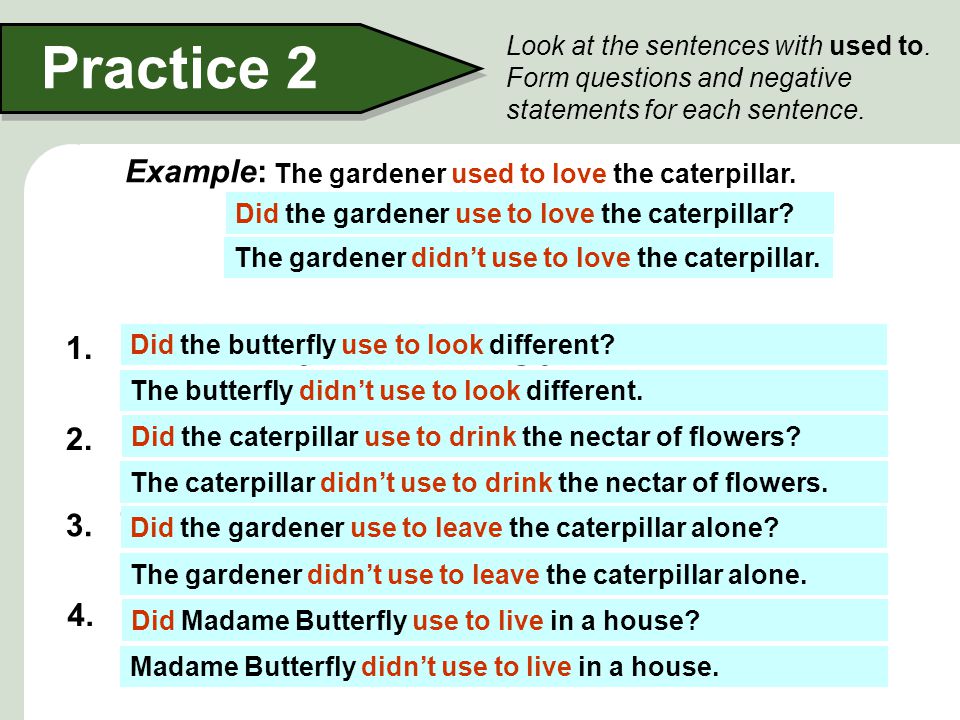
The subject answers the question who? or what? and underline with one line. ~
The predicate is the main member of the sentence, which means what says about the subject.
Predicate answers questions : what does it do? what do they do? what have you been doing? What did you do? what will he do? what will they do?
The predicate is underlined with two lines.
The subject and predicate form the grammatical basis of the sentence.
Write down these offers. Underline the subject with one line and the predicate with two lines.
Offers are common and not common.
Watch the offer:
Autumn was walking through the forest.
This sentence says about autumn .
(What?) autumn is the subject, we underline with one line.
Autumn (what were you doing?) was walking. This is a predicate, we emphasize with two lines.
Autumn was coming is the grammatical basis of the sentence. ~
In this sentence, in addition to main members of proposal , there are secondary members.
Walked (for what? where?) through the forest.
If the sentence consists of major and minor members, it is called common.
Non-extended proposal consists of only main members of the proposal. ~ For example: Morning has come. The birds sang.
Listen to the sentence:
Between the cerebrises of the spider
The beautiful gamach about
explain the meaning of the word Gamachok.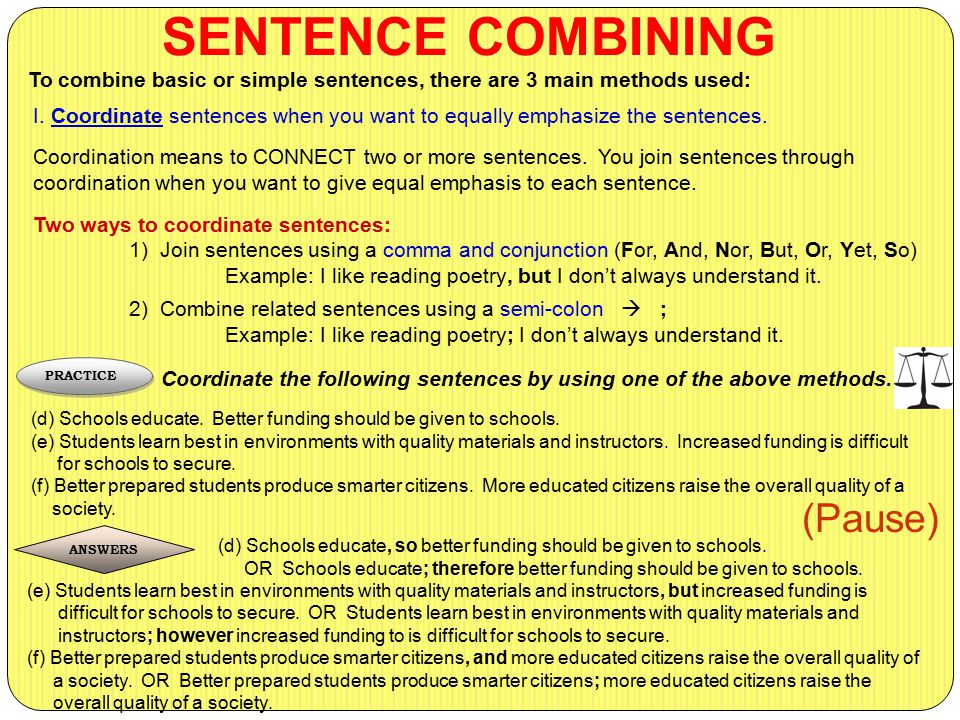
Prove that this sentence is common .
Find the main members of the sentence - subject and predicate.
Please note! The words in the sentence are connected with each other within the meaning of .
Their connection is established on questions that we ask word by word.
Woven (where?) between birches, wove (what?) hammock, hammock (what?) beautiful.
First write down the sentence, and then, following the example, phrases.
Underline the subject and predicate - the grammatical basis of the sentence.
REINFORCEMENT OF LEARNED
Game "Put a sign!"
Conditions of the game:
If at the end of sentence, you need to put a dot , you clap your hands 1 time .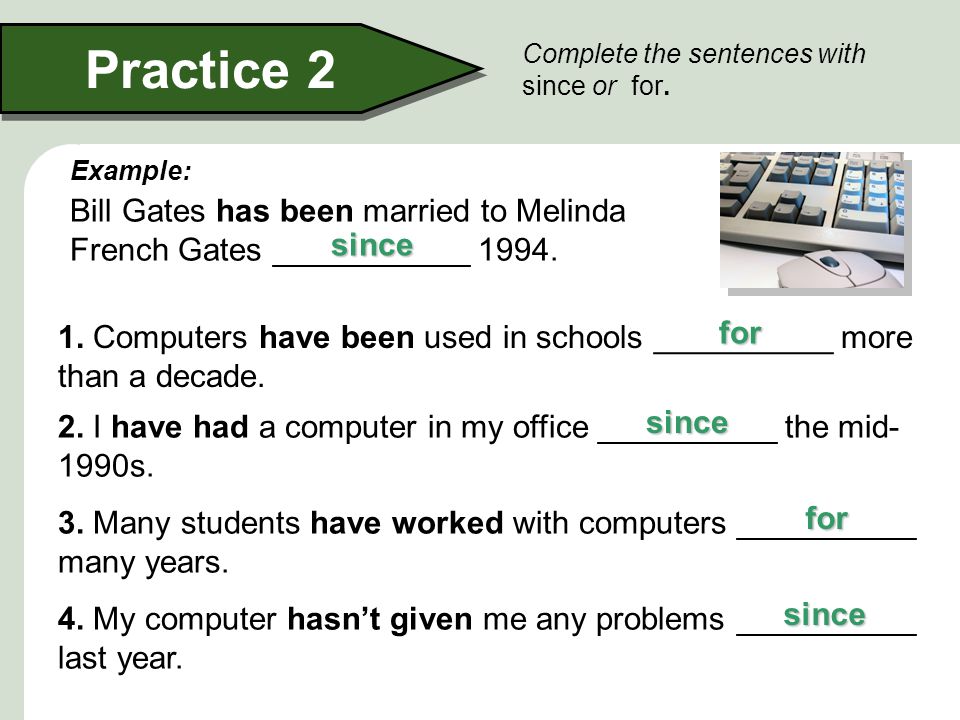
If you need to put question mark - clap 2 times .
If you need to put an exclamation mark - clap 3 times .
This is a poisonous snake... !
It's raining outside....
On Saturday we will go on a tour... ?
Guys, come here… .
Stop teasing your dog...!
Who broke the glass with the ball... ?
Restore the meaning of sentences by putting the words and in place .
ERALASH
An angry boar sat on a branch.
The ship languished in a cage.
The nightingale sharpened its fangs.
The porcupine was honking.
Corrected sentences:
An evil boar sharpened his fangs.
The steamer honked.
The nightingale sat on a branch.
The porcupine languished in a cage.
- Which two groups can the offers be divided into? (Common and non-common).
Name and write down uncommon sentences.
The foreign boy wrote down the sentences:
Lived a people dist e on Bass Street e naya.
Honey eats a bear cub.
The mushroom found the boy.
Are the words related to each other in the sentences for questions ?
Are they related in terms of ?
Correct errors foreign boy.
Make sentences correctly and write them down.
Check yourself:
There lived a scattered man on Basseinaya Street.
Little bear eats honey.
The boy found a mushroom.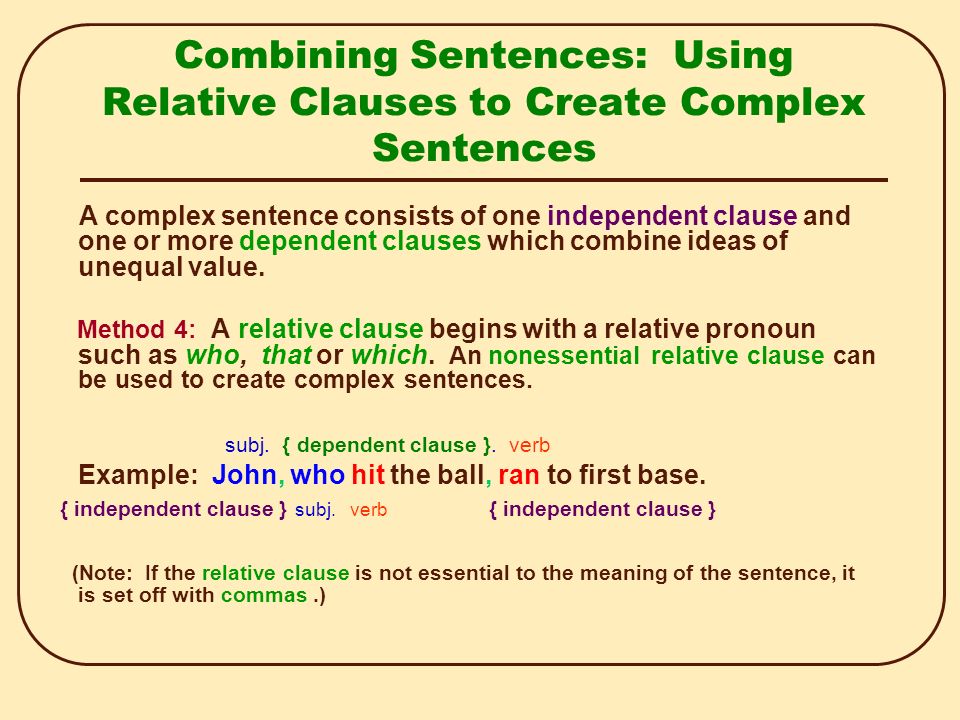
Learn more

